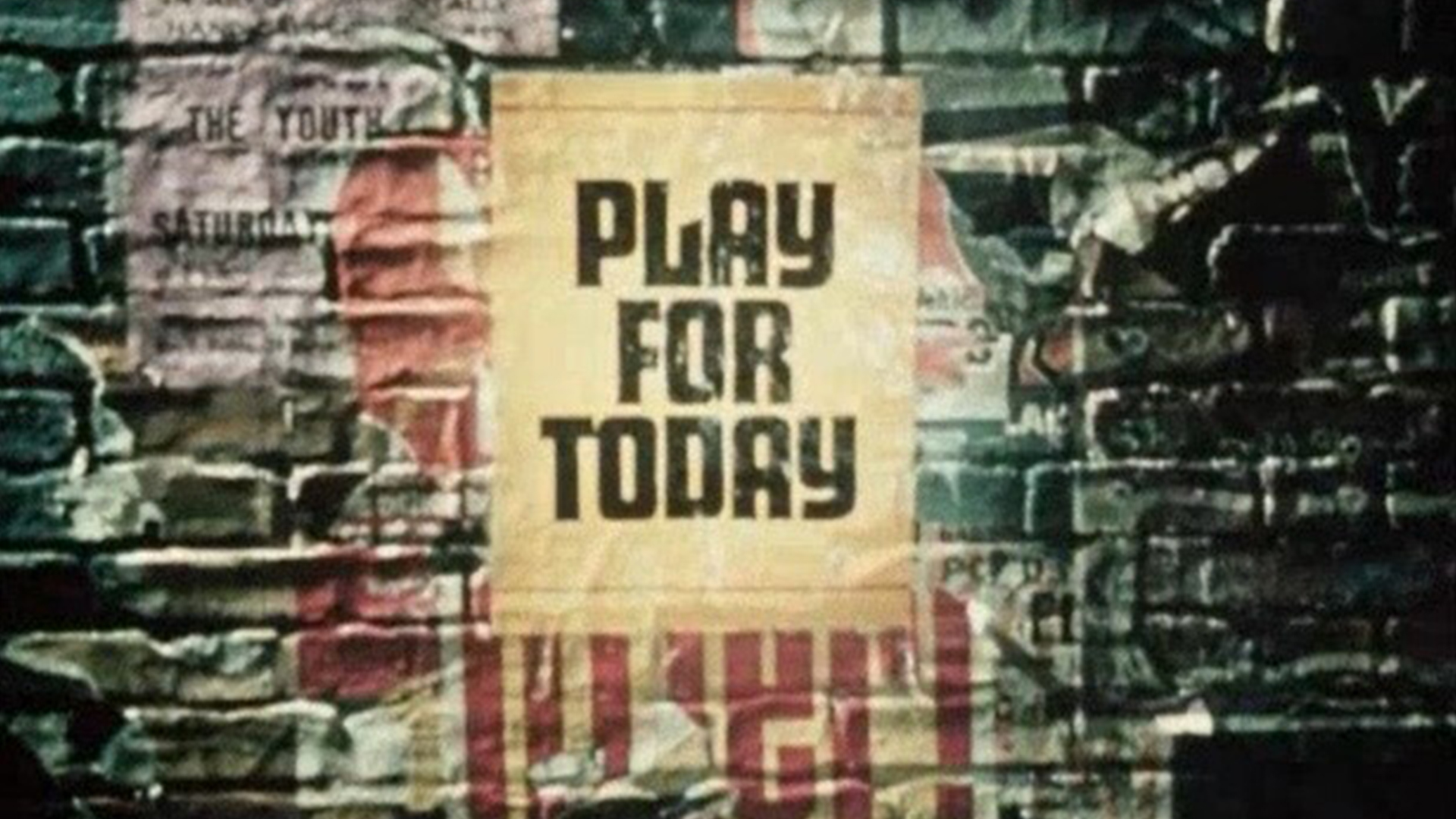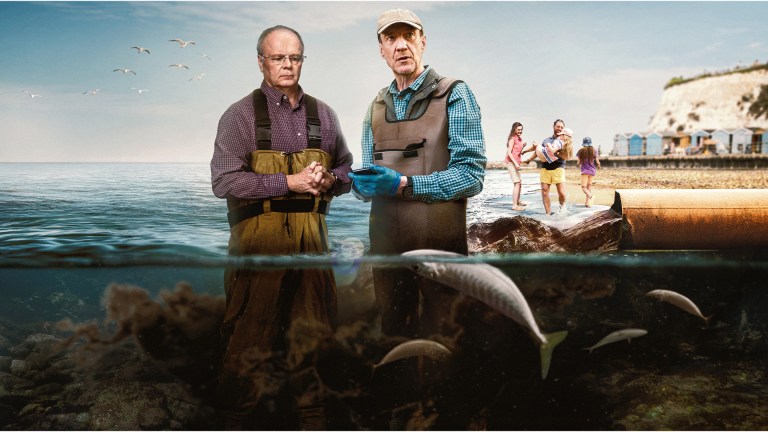“As well as bringing back the single drama format, the purpose behind this strand is to give opportunities to new writers, directors and as many other creative talent behind the scenes as we can,” 5 commissioning editor Paul Testar tells Big Issue.
“It has become really difficult for new talent to break into TV and we have prioritised opportunities for people from low-income backgrounds. The environments that traditionally gave people their breaks, such as soaps, are either declining or disappearing and it is well known in TV drama that big-budget programmes are less likely to take risks on new people. The pool of people who write and direct TV seems to get smaller and smaller.”
The November before Cathy Come Home aired, Loach had directed Nell Dunn’s classic Up The Junction, focusing on backstreet abortion. After failing in his bid to become a Labour MP at the 1964 general election, Dennis Potter also focused on writing television plays (with his characters breaking the fourth wall fully half a century before Phoebe Waller Bridge’s Fleabag). Stand Up, Nigel Barton and Vote, Vote, Vote for Nigel Barton looked at class, education, politics and the well-trodden path from idealism to alienation and cynicism.
This was radical, provocative drama for radical times. And after honing his craft, Potter was able to unleash Pennies from Heaven in 1978 and change television forever.
Play for Today’s return is not a moment too soon. Originally it served as a bridge between radical theatre and television – a way for new, exciting, young talent to take their early steps on screen.
Roland Joffé’s early political work, such as The Spongers – a devastating look at the impact of social security cuts – highlights how Play for Today also served as a beacon of public service broadcasting. Serving the public by the old Reithian remit to inform, educate and entertain, but also speaking truth to power.
Advertising helps fund Big Issue’s mission to end poverty
Mike Leigh honed his unique working methods and observations on the class system on the television plays he created in the 1970s – with Alison Steadman starring in two early classics, Nuts in May (1976) and Abigail’s Party.
Alan Clarke’s Scum, featuring Ray Winstone’s breakout role, was made for the BBC for Play for Today, then banned by the corporation, before eventually being re-cut for cinemas. Stephen Poliakoff’s Stronger Than the Sun was a deeply-felt anti-nuclear tirade in television play form, while, 16 years before Four Weddings and a Funeral, Mike Newell was directing David Edgar’s Destiny for Play for Today – addressing the rise in extreme rightwing politics in the 1970s.
Two years before The Long Good Friday, Barrie Keeffe wrote Waterloo Sunset – a look at 1970s racism through the eyes of an older, white working-class woman returning to her much-changed area of South London and showing solidarity towards a young black man who has been racially targeted. It was directed by Richard Eyre, featured both Floella Benjamin and Robbie Coltrane,
Alan Bleasdale created The Blackstuff for Play for Today. It was so successful it spawned his classic Boys From the Blackstuff series in 1982. Kenneth Branagh was fresh out of Rada when he scored the title role in a trilogy of Play for Today dramas that became known as the Billy Plays. June Brown explored class, alienation and workplace sexism long before she joined EastEnders as Dot Cotton in Carol Bunyan’s acclaimed episode Sorry.
Caryl Churchill had already been the Royal Court’s first female writer in residence before she contributed The After-Dinner Joke in 1978, a satire on the business of charity fundraising, becoming one of relatively few women to write or direct for the series. Such was the culture of television at the time.
Paula Milne followed four years later, writing A Sudden Wrench – an empowering, feminist single drama years before she won a Bafta for The Politician’s Wife and was nominated for three more for The Virgin Queen, Small Island and The Fragile Heart.
Advertising helps fund Big Issue’s mission to end poverty
All these years on, the conundrum of how to reflect and represent the country in all its diversity remains. But Play for Today was a living reminder that talent is everywhere, opportunity is not. And so much talent was unearthed, such a rich tapestry of vital stories aired thanks to a solid commitment to experimental television drama.
This was groundbreaking, talent-breaking work. And so many of the best British acting, directing and writing talent can be traced back to these television plays.
“The old Play for Today piloted ideas that went on to become successful long-running dramas. It would be amazing if we unearthed a new hit show in one of these ideas!” adds Testar.
“We also hope this new series can bring about the return of the one-off drama as a format in British television. Broadcasters (like us) tend to commission serialised dramas because they are easier to bring audiences back week after week. However, audiences are also overwhelmed by the volume of programmes and episodes to watch. There is something appealing in offering a one-off drama that is completed after one hour and requires less investment from the audience.
“Anthology series such as Black Mirror and Inside No 9 are defined by a specific tone and flavour. There is nothing quite like what we are offering with this – whether it is a comedy, a drama, a tragedy, a relationship story, a state of the nation piece, it will be something very different each time.”
So it is that the return of Play for Today was with Never Too Late, written by Simon Warne and Lydia Marchant, a gently comic story set in a retirement village with Nigel Havers cast as – gasp! – a bit of a cad, alongside the always brilliant Anita Dobson and Tracy-Ann Oberman (such a treat for EastEnders fans seeing them together).
Advertising helps fund Big Issue’s mission to end poverty
It is not until the fourth and final installment of the new run, Special Measures, by Lee Thompson, that we get the grit and politics – with the drama set inside an underfunded school. Will this be the new formula? Bring in the viewers with big names while bringing new writers, directors and production talent to the fore, before sneaking in the heavyweight themes…
“We hope the harder hitting dramas might provoke wider national conversation,” says Testar.
“We have seen how dramas can bring important topics to wide audiences in a way that documentary or news can’t. The way Mr Bates vs The Post Office created huge public opinion about the post office scandal, and Adolescence sparked discussions about toxic masculinity in teenagers was spectacular. If our drama Special Measures, which explores the pressures on teachers, can do something like that it would be a huge success.”
Play for Today airs on Thursdays on 5.
Do you have a story to tell or opinions to share about this? Get in touch and tell us more.
Change a vendor’s life this Christmas.
Advertising helps fund Big Issue’s mission to end poverty
Buy from your local Big Issue vendor every week – or support online with a vendor support kit or a subscription – and help people work their way out of poverty with dignity.









